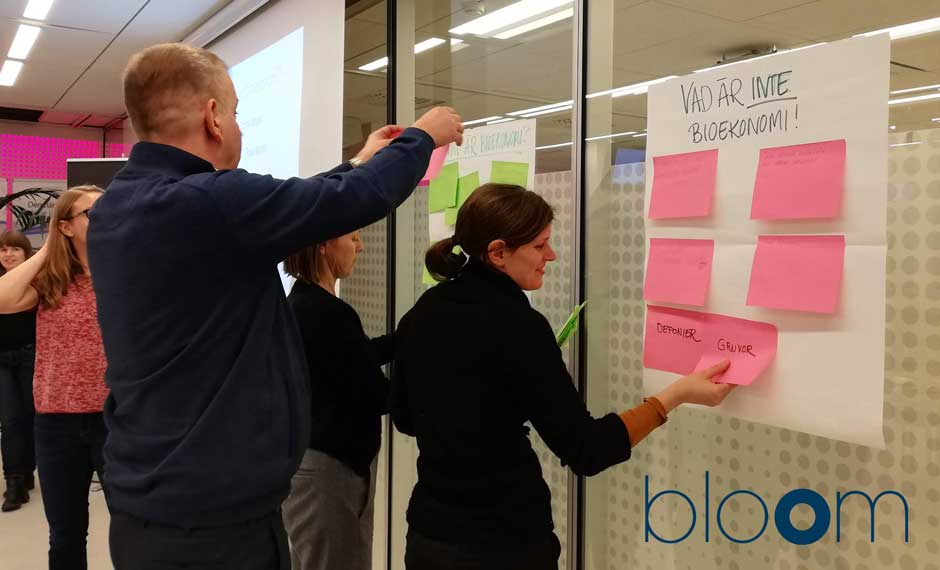What is the bioeconomy? Is it always climate-friendly? Does it mean the sustainable use of natural resources? What are renewable resources and bio-based production? Does the bioeconomy include the circular economy and ecosystem services, or anything else? Two workshops held in December and January in Stockholm brought together a range of people with an interest in this field to discuss ways to increase public interest and knowledge about the bioeconomy.

The workshops were run by VA as part of the EU project BLOOM Bioeconomy, which has a particular focus on young people. A European network of regional hubs are developing activities, both regionally and at European level, together with stakeholders. Each hub has a focus on a particular sector depending on regional expertise. VA, together with JAMK, University of Applied Sciences in Jyväskylä, Finland, is responsible for the BLOOM Nordic Hub, which has an emphasis on forestry and new wood-based products.
How can people embrace the opportunities that the bioeconomy offers in order to make society more environmentally friendly, to use less fossil fuels and more bio-based raw materials? This was one of the challenges given to participants at the two workshops organised by VA in Stockholm.
To be able to communicate about the bioeconomy effectively and design appropriate activities, everyone needs to have a common understanding of what the bioeconomy is. Based on discussions at the workshops, we have developed a working definition of the concept:
THE BIOECONOMY is economic and societal development based on RENEWABLE RESOURCES. It encompasses products/services made from natural resources, bio-based materials and processes (land, forest, sea and fresh water). The bioeconomy also includes trade in ecosystem services. The bioeconomy REQUIRES changes to processes and skills in society. A transition to the bioeconomy CAN lead to sustainable societal development and to a circular economy.
THE BIOECONOMY is about NOT using finite resources such as fossil raw materials and minerals. It does NOT need to be small-scale, ecological, circular, sustainable, non-polluting or likeable!
There are already a large range of regional and national activities and campaigns addressing the forest industry, forest-based products and new innovative materials. The Nordic hub wants to build upon what has been talked about in practice and develop communication activities targeted at young people, particularly girls. One of the aims of BLOOM is to create opportunities for regional and national stakeholders to collaborate and exchange knowledge, and to find new ways to engage the public and young people.
New materials on the bioeconomy for schools
One way to reach young people is via schools. BLOOM project partner European Schoolnet has therefore developed educational materials for different ages together with some 20 teachers from Belgium, Greece, Israel, Italy, Croatia, Poland, Portugal, Spain, Sweden and Austria. The BLOOM School box will be available on the BLOOM project website in March – School Network
Are you a teacher and want to learn more about bioeconomy? BLOOM MOOC is an online course for teachers and a course on ”Boosting Bioeconomy Knowledge in Schools” starts on 4 March.
Interested in getting involved?
We want to increase young people’s interest in, and knowledge of, the bioeconomy and all of the opportunities that the forest industry offers, as well as to highlight these issues in the climate debate. The next step is to design appropriate communication activities. If you are interested in getting involved, please get in touch.
